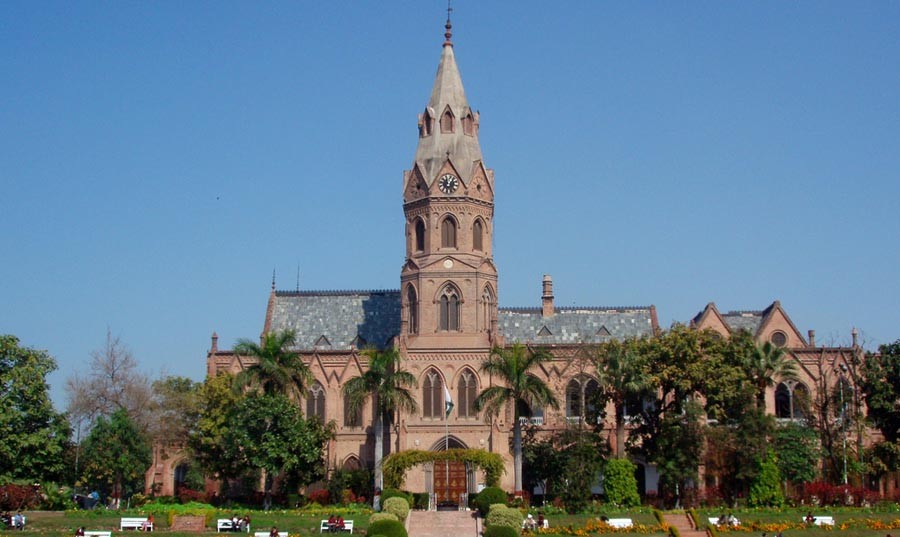

My academic association with Government College University (GCU), Lahore that spanned over 24 years, will be coming full circle on January 10, 2019. That rather longish stint at a once premier institution was interspersed by a few interludes. I was selected as a Common Wealth Fellow at University at Southampton, UK for nine months and then in 2010, I went on to spend five years at the University of Cambridge on Iqbal Chair. Despite these intervals, I have been a witness to the vicissitudes that the GCU went through, its elevation from College to University being the most conspicuous one. It is struggling with structural issues, scarcity of space and financial constraint. The issues emanating from 18th amendment have compounded its problems even further. Some characters in the guise of being its benefactors are grinding their own axe with impunity.
Yet, after observing other public sector institutions, I still rank GCU, Lahore as the best. It certainly has many advantages which no other institution can lay claim to. It has a glorious past, its alumnus ensconcing in positions of power, which the administration can bring to its profitable use. The overall ambience is still not as straitjacketed as some other institutions. The flexibility that is sine qua non for the promotion of academic culture has not vanished completely in GCU. Most importantly, it has in its service, a few selfless guys whom I rate as a rare asset for any living and thriving institution. They are the real instruments of ensuring this institution ranks among the top. Their selflessness and devotion in fact prompts me to make them the theme of my today’s column.
Among these freaks (in a good sense, of course) is Dr. Irfan Waheed Usmani. In my 32 years of academic career, I haven’t come across anybody like him. Idealist to the core, Usmani has a passion for teaching and unflinching compassion for his students. He earned his PhD from the National University of Singapore which is arguably the best institution for postgraduate studies. All that he learnt from NUS, he is imparting to students with utmost generosity. No wonder, students revere him like a saint. He is one person responsible for bringing about social mobility in the lives of countless people and quite selflessly so.
A GCU security guard, Hafiz Munawar, started attending his class and after due preparation managed to do master’s in history and managed to secure the position of a lecturer in history through Punjab Public Service Commission. A primary school teacher did M. Phil and then PhD and now he is assistant professor at Sangla Hill. There are not one or two but scores of cases. His class is populated by not only by his own students but those from different departments, particularly those aspiring to sit in the competitive examination. A number of students go to his home where they are fed, taught and at times given space to spend a night or two. All that favour is extended to them free of charge. Most of the time at the GCU campus, he is busy taking extra classes particularly for academically weak students.
Dr Usmani has an uncanny ability to simplify the most complex theories, making him into a unique teacher. I wonder as to how he finds time out for reading because I have never found him deficient or out of date. In fact, the extent of his erudition is frighteningly vast. On top of it, he is blessed with a photographic memory. In research methodology, he is probably the best in the country. Without any exaggeration, he is a one-man institution. An incarnation of good, GCU is privileged to have him on its faculty.
The next person I intend to write about quite different from the legend that Usmani is; yet in some respects he is quite like our first protagonist, Syed Yasir Usman. Slim, sleek and charismatic, Yasir Usman is an extremely revered teacher and a valuable colleague. Cool and calm, Usman who teaches Geography, at the very first glance appears to be a mysterious person. Carrying a couple of bags along with a camera slinging around his neck, he is on the move most of the time. Being an incharge of Hiking and Mountaineering Club, he spends most of his weekends away from the comforts of home. Going an extra mile to help his students and colleagues is his second nature. Even after his students have done their degrees, they keep coming back to him for guidance; he generously helps them in their preparation for the competitive examination.
Like Usmani, Yasir does not care about what he gets in return. He too is selfless but unlike Usmani he has several detractors. Photography is his hobby, which he pursues with passion. His camera is his twin traveller. I don’t know how he strikes a balance between his passions, profession and family.
The last in the line is Muhammad Naeem, senior librarian at GCU. Though he appears old-fashioned, he carries a sociable, sensitive and extremely helpful persona. He is professional to the hilt. The academics at GCU who want to pursue research don’t usually encounter any problem in accessing sources just because of Naeem. Among the non-academic staff, he is undisputedly the most efficient and conscientious person in the entire university. He maintains a vast network of his personal relationship with the fraternity of librarians and makes available any document or a book that is lying anywhere within Pakistan and even from outside Pakistan. I hope the people running GCU come to value library and the librarian(s).
When we talk about institutions and institutionalised practices, such people are a vital resource, the utility of whom must be understood. They work for the institutions and not for their personal benefit, which is the key for rising above personal gains and investing their energies and time for collective benefit.